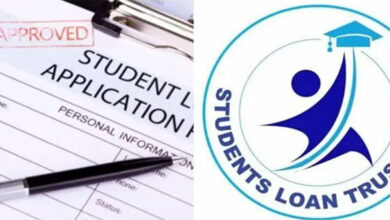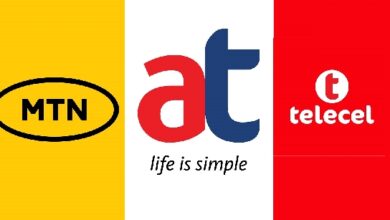HOW TO REGISTER FOR INCOME TAX – GRA.GOV.GH
Here is how to register for income TAX – GRA.GOV.GH
Table of Contents
Do I have to register to pay Income Tax
You should register to pay Income Tax if you earn income from business and investment. This will help GRA to collect information about your business, for example, location and nature of business. If you do not live in Ghana but earn an income in Ghana, you have to register pay the taxes on the income earned in Ghana
When do I need to be registered
You should register for payment of Income Tax when you start a business. You must also register your business with the Registrar General’s Department of Ghana
Registration for Income Tax is free.
There is no charge to register to pay Income Tax at any GRA Domestic Tax Revenue Division Office
Do I need to register to pay Income Tax if I have a TIN
After you get a TIN, you must register for payment of Income Tax and filing of Returns with GRA.
What if I do not register
If you fail to register for Income Tax, GRA will take legal and enforcement actions against your business and person. You will also face sanctions and incur penalties.
How do I register for Income Tax
Go to the nearest GRA Domestic Tax Revenue Division office to fill the Income Tax registration form. You can also download the form online, complete and submit.
What documents do I need to register
You need your TIN, business registration certificate and other supporting documents, for example, bank statements, sale records.
How long does it take to get registered
If all your documents are valid, your registration should be completed within 24 hours. If your registration is successful, you will be given a provisional assessment of Income Tax to pay for the year.
Next steps after registration
Your Tax Office will teach you how to keep appropriate records on your business and how to calculate and pay your Income Tax.
Your tax file which contains a record of all your tax activities is opened for you.
How do I get help
Contact the nearest GRA Domestic Tax Revenue Division office to register.
Contact the GRA through email oninfo@gra.gov.ghor WhatsApp on 0200631664 / 0552990000 for further help on registration for Income Tax.
What is Income Tax
Income Tax is a tax charged on a person’s income from employment, business and investment. Persons such as employees, self-employed, persons in partnership, shareholders and directors of companies and trustees and beneficiaries of a trust are all charged tax on income earned.
Do I need to pay Income Tax
You must pay Income Tax if you are an employee, sole proprietor or a person in a partnership and you earn income above Gh¢ 261 per month.
How do I pay my taxes if I do not live in Ghana?
If you do not live in Ghana but earn an income in Ghana, you will have to pay the taxes in Ghana. You will have to register with the Ghana Revenue Authority. If you live outside Ghana and you earn an income from a business transaction, Income Tax will be paid by the business.
Types of Income Tax
The main types of Income Tax are:
Pay As You Earn (PAYE)
It is a tax deducted from employees’ income and is paid by an employer on behalf of the employee. The tax is charged on all income of an individual in employment, whether it is received in benefit or in kind. A monthly PAYE return must be filed by the employer on behalf of employees on or before the fifteenth day of the month following the month in which the deduction was made.
Personal Income Tax (PIT)
It is a tax charged on an individual’s total income (income from employment, business and investment). You must pay Income Tax if you are a sole proprietor or a person in partnership and you earn income above Gh¢ 261 per month.
Corporate Income Tax (CIT)
It is a tax charged on a company’s total income sources at the end of the company’s accounting income year. Companies pay tax on business and investment income known as gains and profit. This income does not include expenses made while obtaining the income.
Withholding Tax (WHT)
It is a tax which is deducted at source by a withholding agent (a person required to deduct tax) when making payment to another person and accounted for later to the GRA.
A registered partnership, company and trust and other businesses that make payment to another person for goods or services bought qualify to withhold the tax unless the person is exempted from paying the tax. You must be registered to be allowed to withhold tax from business transactions.
Rent Income Tax
It is the tax on income that accrues to someone as a result of rental or leasing a property (residential and commercial) to another person.
Income Tax Stamp
It is a tax designed for individuals operating in the informal sector, for example, small-scale self-employed dressmakers / tailors, hairdressers / beauticians / barbers, susu collectors, chop bar owners, cooked food sellers, butchers, container / kiosks / table top operators, garage owners, artisans (masons, carpenters, welders, mechanics, vulcanizers, electricians, sprayers), hawkers and itinerant traders.
Income Tax Stamp is paid on quarterly basis. The due dates are 15th January, 15th April, 15th July and 15th October. It is categorized based on the size, nature and volume of the business. A Tax Stamp must be conspicuously displayed at the business premises or carried on your person (in the case of itinerant traders) for inspection at any time.
Vehicle Income Tax (VIT)
It is a tax designed for commercial transport operators. Due dates for payment of VIT are 15th January, 15th April, 15th July and 15th October. It is categorized based on the tonnage and number of passengers. The VIT sticker must be conspicuously displayed on the windscreen of all commercial vehicles.
HOW TO APPLY FOR TAX RELIEF
Tax relief
A relief is an allowance given to a resident individual to reduce his or her tax burden.
How to apply for tax relief
A resident individual can apply to the Commissioner-General in a prescribed form. The relief is given with respect to your personal situation as stated on your application form.
The relief form can be obtained from any of the GRA’s Domestic Tax Revenue Division offices across the country.
Types of reliefs;
Upfront reliefs
A. Marriage / responsibility relief
This relief is granted to a resident individual who takes care of his wife or her husband or takes care of at least two children.
The relief is GH¢200 per year.
B. Child education relief
This is granted to a resident individual who pays his or her child’s school fees. the relief is granted to a maximum of three children attending any recognized registered educational institution in Ghana. A child under this law includes an adopted child or ward.
Both parents cannot claim this relief in respect of the same child /children
The relief is GH¢200 per child per year.
C. Disability relief
This is granted to persons who prove to the satisfaction of the Commissioner-General that they are disabled
This relief is granted to disabled persons who receive income from business or employment only
The relief is 25% of the disabled person’s income from business or employment
D. Old age relief
This relief is granted to persons who are 60 years of age
The relief is GH¢200 per year.
E. Aged dependant relative relief
This relief is granted to a resident individual who takes care of a relative who is sixty years old and above.
The relief is granted up to a maximum of two relatives
The relief does not apply to a dependent’s spouse or child
Two persons cannot claim this relief in respect of the same relative.
The relief is GH¢100 relative per year.
Other Reliefs
F. Educational relief
A resident individual can also be granted educational relief if that person undergoes training to update his/her professional, technical or vocational skills or knowledge.
The relief is GH¢200 per year.
PAY AS YOU EARN (PAYE)
What is PAYE
PAYE is a tax deducted from your income as an employee and is paid by an employer on your behalf. The tax is charged on all of your income of whether it is received in cash or in kind.
How PAYE works
The monthly PAYE is deducted at source by your employer using the monthly graduated individual tax rate. These items are deducted from employees’ income before calculating PAYE.
Deductions and allowances
- Social Security and National Insurance Trust-5.5% of basic salary.
- Mortgage Interest paid on only one residential premises of the employee’ lifetime.
- Provident fund up to 16.5% of your basic salary either paid by the employer or employee or both.
- Contributions and donation to a worthwhile cause
These are some of the allowances that will be added to salary for PAYE purposes such as; Transport allowance, Rent (Accommodation) allowance.
- Risk allowance, Night duty allowance, Responsibility allowance, Child Education allowance, House help allowance, Cook allowance, Garden boy allowance, etc.
- Allowances paid in cash are added to the salary. Benefits to the employees in kind are added for tax purposes, but when the benefit is paid in kind, it is quantified in monetary value before it is added to salary such as electricity, water, vehicle with driver and fuel, vehicle and fuel, vehicle only, fuel only, accommodation and loan benefit are also benefit in kind which are quantified in the law. (See link: The Fourth Schedule of Act 896,2015 for the tax rates applicable)
Eg.
Mr. Kofi is an employee of Yahweh Co. ltd. His monthly basic salary is Gh¢500. additionally, he entitled to monthly allowances such transport allowance Gh¢ 500.00, Rent allowance Gh¢ 650, Risk allowance Gh¢250. Mr. Kofi contribute Gh¢150 per month to a provident fund. This is how Mr. Kofi PAYE payable will be Computed.
(I)
Kofi’ annual basic salary is Ghc40,000.
Total bonus received is Gh¢5,000.
Kofi’s bonus tax
15% of Gh¢40,000 = Gh¢6,000
total bonus received = Gh¢5,000
Because bonus received is less than the 15% of annual basic salary, Kofi’s tax on bonus is 5,000 x 5% = Gh¢250
(II)
Kofi’s annual basic salary is Gh¢40,000.
Total bonus is Gh¢ 7,000.
Kofi’s bonus tax
15% of Gh¢40,000 = Gh¢6,000
Bonus received = 7,000
Excess bonus (7,000 – 6,000) = 1,000
Bonus tax (6,000 x 5%) = 300
The difference between the 15% and the bonus received of Ghc7,000 is Ghc1,000. The Gh¢1,000 is then added to Kofi’s annual basic salary of Gh¢40,000 and tax with the graduated rates.
Overtime
Overtime rate is applicable to employees who are junior staff and their qualifying employment income including profits and gains to be taxed in the year is not more than Gh¢18,000. A junior staff whose qualifying employment emolument is more than Gh¢18,000 is not entitled to overtime pay.
When an employer pays overtime to any employee that is not more than 50% of the employees monthly basic salary, the employer will deduct 5% as overtime tax. However, if the overtime paid is more than 50% of the employee’s monthly basic salary, the excess of the 50% is taxed @ 10%. Unlike bonus no overtime is added to basic salary. It should be noted that for non- resident employees’ tax on bonus or overtime is 20%
Eg.
(i)
Kofi is the manager of ABC Ltd, his basic salary for the month is Gh¢1,400 and receives Gh¢1,000 as overtime pay. Overtime tax is not applicable to Kofi because he is not a junior staff although his qualifying employment income (Gh¢1,400 x 12 = Gh¢16,800 is not up to Gh¢18,000. Kofi’s overtime pay will be added to salary and taxed).
(ii)
Kofi is a driver and receives monthly basic salary of Gh¢800 and a total allowance of Gh¢200 per month. His overtime pay for the month is Gh¢500. Kofi’s qualifying employment income is Gh¢12,000 (800 x 12 + 200 x 12) 50% of Kofi’s basic salary is Gh¢400 (800 x 50%) overtime pay is Gh¢500
Overtime tax is computed as follows:
Gh¢400 x 5% = Gh¢20
Gh¢100 (500 – 400) x 10% = Gh¢10
Total = 30
Company Income Tax (CIT)
Companies pay tax on their business and investment income also known as gains and profits, which does not include expenses made to obtain the income.
The tax rate applicable to a company depends on the industry as follows:
AMENDMENTS TO THE INCOME TAX ACT, 2015 (ACT 896)
The Ghana Revenue Authority wishes to inform the general public that following the passage of the Income Tax (Amendment) (No. 2) Act, 2018 (Act 979), the following amendments have been made to the Income Tax Act, 2015 (Act 896).
The Income Tax Amendment) (No. 2) Act, 2018 (Act 979) has provided for new rates applicable to Resident Individuals. The new rates are:
A. ANNUAL INCOME
ANNUAL INCOME TAX RATES APPLICABLE TO RESIDENT INDIVIDUALS
| CHARGEABLE INCOME | RATE | TAX | CUMULATIVE CHARGEABLE INCOME | CUMULATIVE TAX |
| GH₵ | % | GH₵ | GH₵ | GH₵ |
| First 3,456 | Nil | – | 3,456 | – |
| Next 1,200 | 5 | 60 | 4,656 | 60 |
| Next 1,680 | 10 | 168 | 6,336 | 228 |
| Next 36,000 | 17.5 | 6,300 | 42,336 | 6,528 |
| Next 197,664 | 25 | 49,416 | 240,000 | 55,944 |
| Exceeding 240,000 | 30 |
B. MONTHLY INCOME
MONTHLY INCOME TAX RATES APPLICABLE TO RESIDENT INDIVIDUALS
| CHARGEABLE INCOME | RATE | TAX | CUMULATIVE CHARGEABLE INCOME | CUMULATIVE TAX |
| GH₵ | % | GH₵ | GH₵ | GH₵ |
| First 288 | Nil | – | 288 | – |
| Next 100 | 5 | 5 | 388 | 5 |
| Next 140 | 10 | 14 | 528 | 19 |
| Next 3,000 | 17.5 | 525 | 3,528 | 544 |
| Next 16,472 | 25 | 4,118 | 20,000 | 4,662 |
| Exceeding 20,000 | 30 |
The schedules above are the annual and monthly Personal Income Tax Rates applicable to Resident Individuals. These are the rates that should be used to compute the tax for self-employed persons and Pay As You Earn (PAYE) for salaried workers / employees.
2. Sub section 10 of section 116 of Act 896 provides for the taxation of supply of goods, works or services by non-residents. The tax rates for the supply of goods, works or services by non-residents is twenty percent (20%) in accordance with paragraph 8 (1) (c) (ix) of the first schedule of Act 896.
These amendments came into force effective 1st January, 2019.
The general public particularly the self-employed, employers, employees, accountants, auditors, paymasters and tax consultants must take note and comply.
- How To Register For Income Tax 2022/2023/2024/2025








